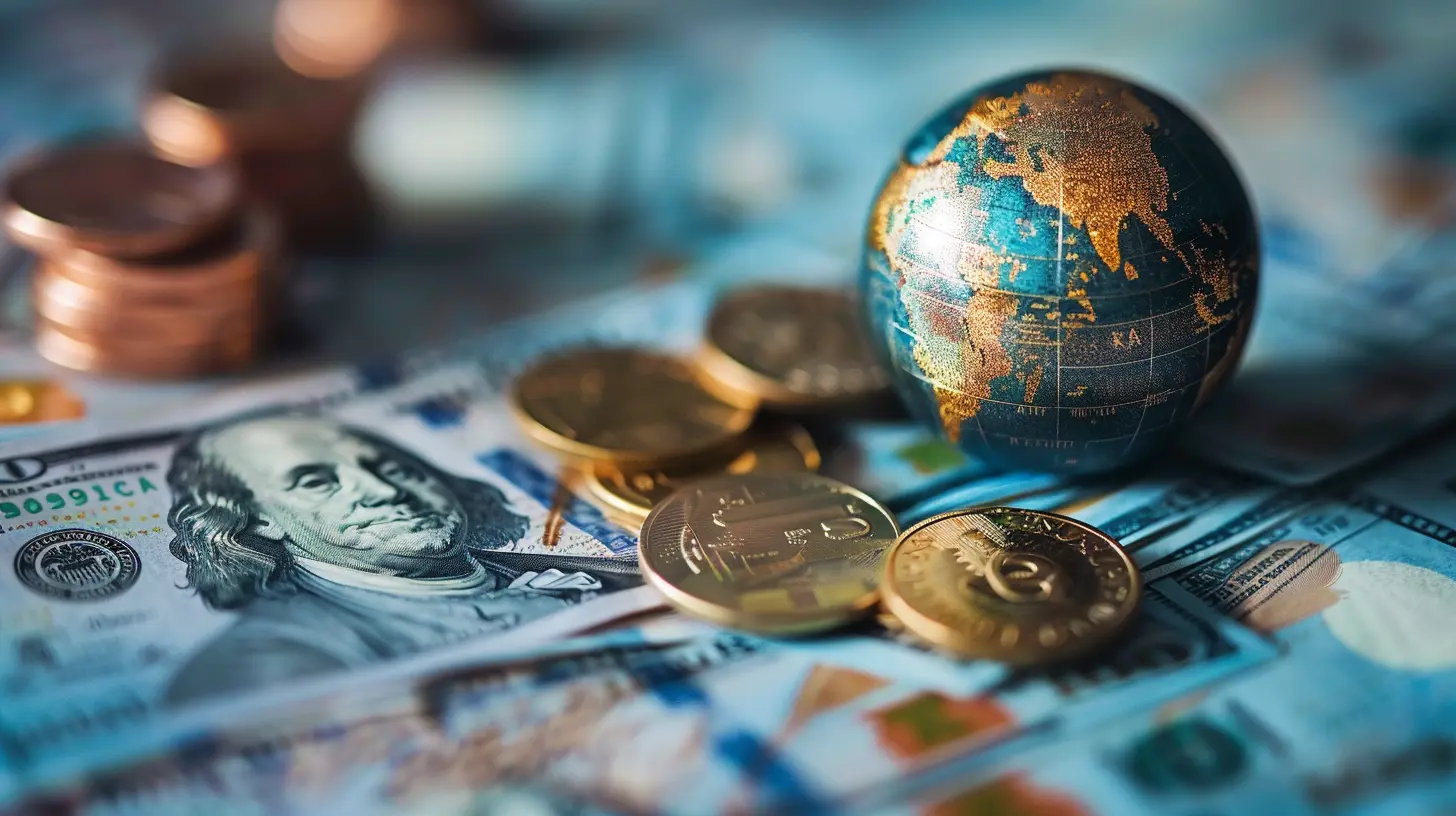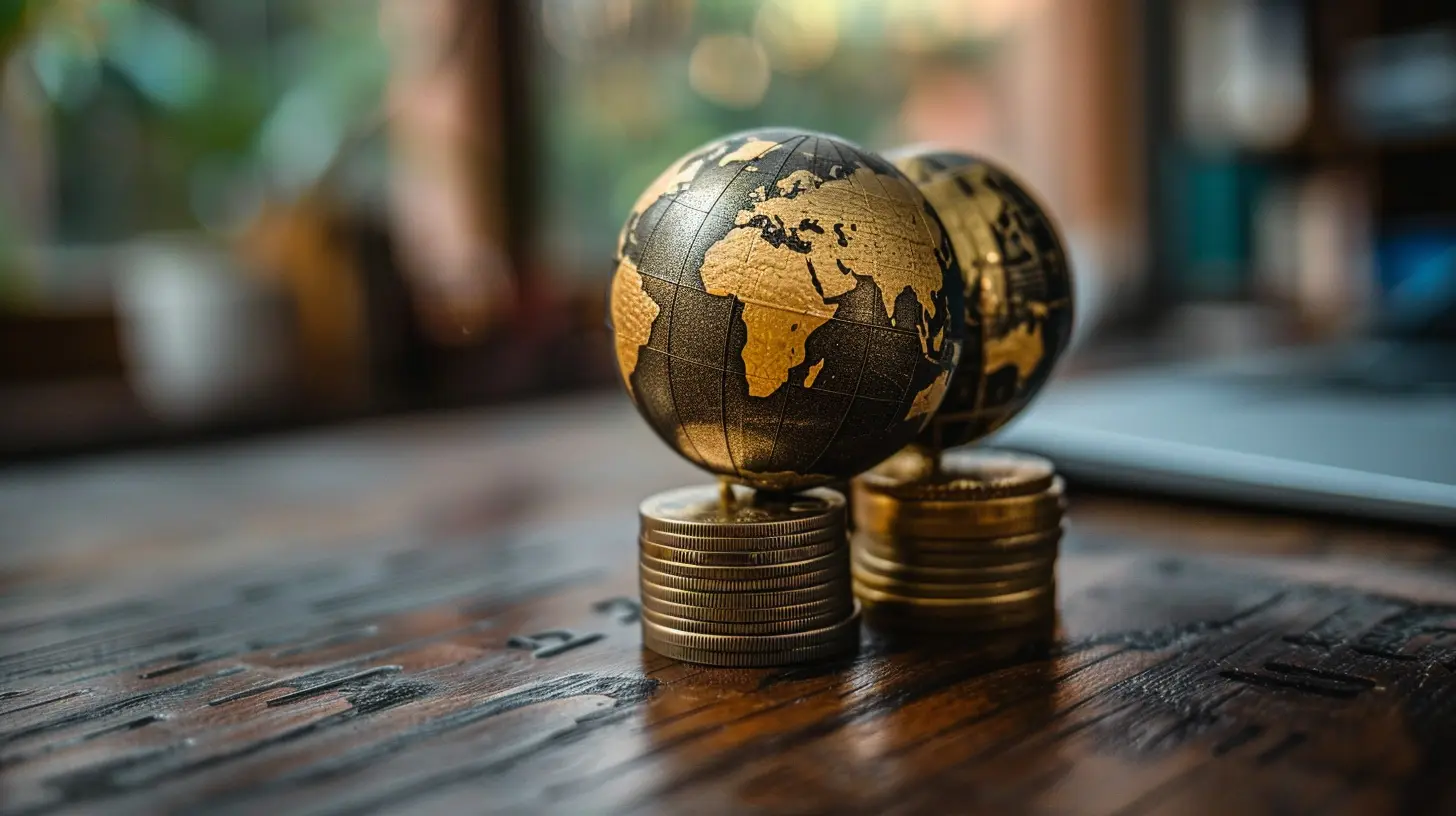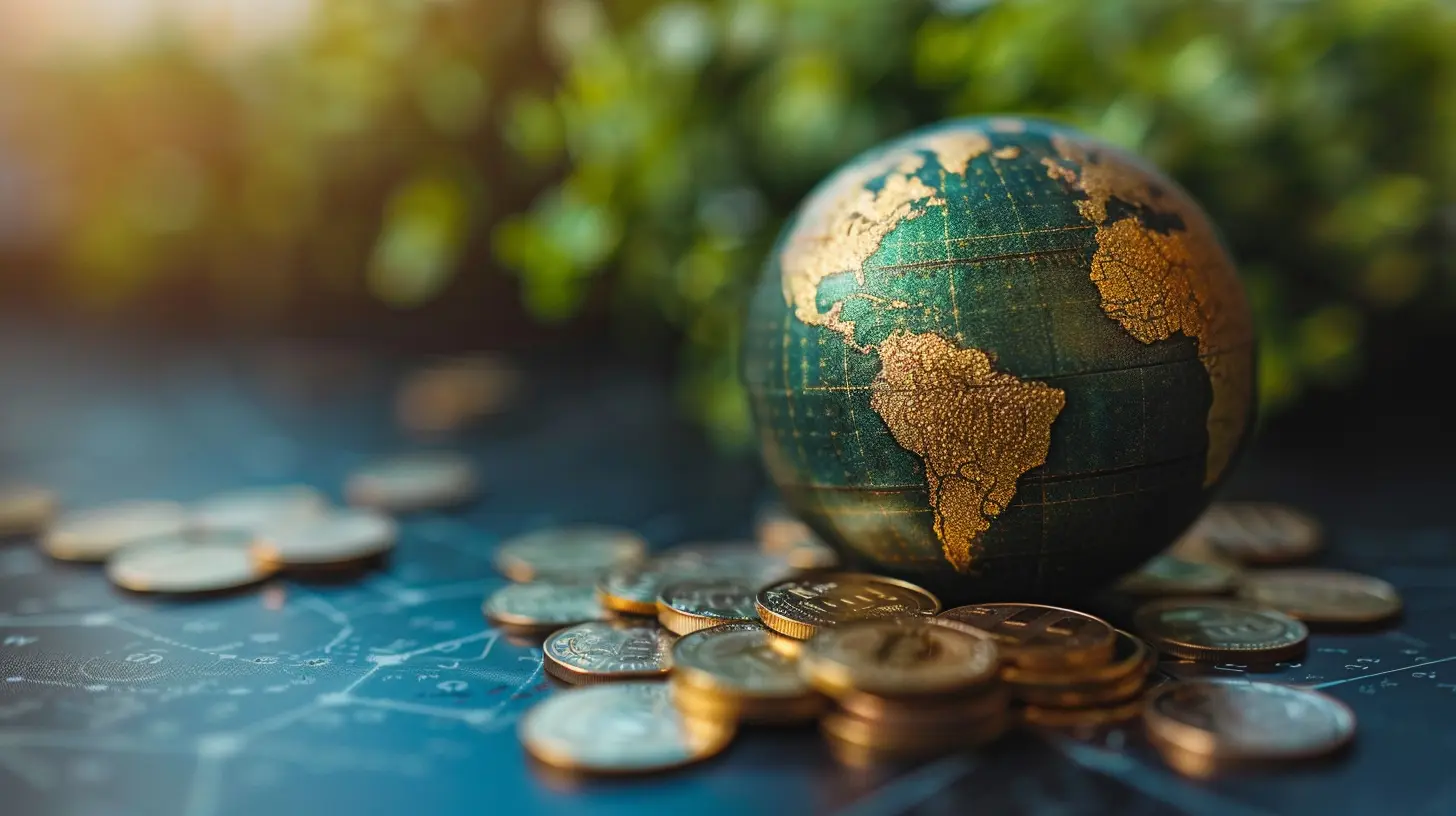20 April 2025
Inflation—it’s that economic buzzword you hear everywhere, from news reports to casual conversations at the grocery store. But what exactly does it mean for global markets? And why does it feel like prices are constantly creeping up?
Let’s break it all down in a way that actually makes sense. Whether you're an investor, a business owner, or just someone trying to stretch a paycheck, understanding inflation’s impact on global markets can help you make smarter financial decisions. 
What Is Inflation, Really?
Inflation is the rate at which the general level of prices for goods and services rises, eroding purchasing power over time. In simple terms, your money buys less than it used to. A $5 coffee today might cost $6 next year.But inflation isn’t always a bad thing. A moderate level of inflation is actually a sign of a growing economy. If prices stayed the same forever, businesses wouldn’t make higher profits, and wages wouldn’t increase. The problem arises when inflation spirals out of control, making everything—from groceries to investment returns—more expensive. 
How Inflation Affects Global Markets
When inflation rises, it sends ripples across economies, businesses, and financial markets worldwide. Let’s dive deeper into the biggest ways inflation impacts global markets.1. Stock Markets: A Rollercoaster Ride
Stock markets don’t like uncertainty, and inflation brings plenty of it. When inflation is high:- Higher Costs for Businesses – Companies pay more for raw materials, transportation, and labor, squeezing profits.
- Higher Interest Rates – Central banks may hike rates to control inflation, making borrowing more expensive for businesses.
- Lower Consumer Spending – As living costs rise, people spend less, hitting company revenues.
This combination often causes stock prices to drop, making investors nervous. However, some sectors—like commodities, energy, and consumer staples—tend to perform well during inflationary periods.
2. Bond Markets: The Interest Rate Tug-of-War
Bonds and inflation have a tricky relationship. Bond prices typically fall when inflation rises because higher inflation eats away at the fixed interest payments bonds provide.Investors demand higher yields (returns) to compensate for inflation, pushing bond prices down. That’s why rising inflation often leads to increased interest rates, making borrowing more expensive for businesses and governments.
3. Currency Value: The Strength of a Country’s Money
Inflation can weaken a country’s currency value in global markets. If a country has high inflation while others keep it under control, its currency loses value against other currencies.For example, if inflation in the U.S. is soaring while Europe keeps it low, the U.S. dollar might weaken against the euro. A weaker currency makes imports more expensive, driving prices even higher—a vicious cycle.
Conversely, countries with low inflation and high interest rates often see stronger currencies because foreign investors flock to them for better returns.
4. Commodities: The Inflation Hedge
When inflation rises, commodities (like gold, oil, and agricultural products) often see price surges. Why? Because tangible assets hold value better than cash.- Gold – Often called the “inflation hedge,” gold tends to rise when inflation erodes the value of paper money.
- Oil and Energy – As inflation heats up, energy prices often follow suit, affecting everything from gas prices to electricity bills.
- Food Prices – Higher transportation and production costs push food prices up, impacting every economy.
5. Real Estate: A Mix of Benefits and Challenges
Real estate can be a mixed bag during inflationary periods. On one hand, property values may rise as the cost to build homes increases. On the other hand, rising interest rates make mortgages more expensive, cooling demand for real estate purchases.For property owners, inflation can be beneficial if rental income rises along with the cost of living, making real estate a useful long-term hedge against inflation. 
How Central Banks Respond to Inflation
When inflation runs wild, central banks step in to pull the brakes. Their main tool? Interest rates.Raising Interest Rates
By increasing interest rates, borrowing becomes more expensive, slowing down spending and investment. This helps cool inflation but can also slow economic growth, risking a recession.Reducing Money Supply
Central banks may also tighten the money supply by selling government bonds or reducing stimulus measures. Less money circulating means lower demand, helping stabilize prices.Setting Inflation Targets
Many central banks aim for a target inflation rate (typically around 2%) to maintain stability. If inflation rises too fast, they intervene; if it’s too low, they may lower rates to encourage spending.
How Investors Can Protect Their Money from Inflation
If inflation is inevitable, how can you safeguard your hard-earned money? Here are some smart investment strategies:1. Diversify Your Portfolio
Investing in a mix of assets—stocks, bonds, real estate, and commodities—helps balance risk during inflationary periods.2. Consider Commodities and Gold
Gold, silver, and other commodities tend to rise with inflation, making them great additions to an inflation-proof portfolio.3. Look into Inflation-Protected Securities
Treasury Inflation-Protected Securities (TIPS) in the U.S. and similar bonds in other countries adjust their value with inflation, offering stability.4. Invest in Dividend-Paying Stocks
Companies that pay dividends can provide steady income even when inflation eats into purchasing power.5. Own Real Estate
Property values and rental income often climb with inflation, making real estate a reliable long-term asset.The Bigger Picture: Inflation and Everyday Life
Beyond global markets, inflation affects daily life in ways that hit close to home.- Higher Cost of Living – Food, fuel, and housing prices rise, making budgeting more challenging.
- Wage Growth Struggles – Unless wages keep up with inflation, purchasing power declines.
- Savings Lose Value – Money sitting in a savings account loses buying power over time.
That’s why staying informed about inflation helps individuals make smarter financial decisions—whether it’s investing wisely, cutting unnecessary expenses, or negotiating better wages.
Final Thoughts
Inflation is like a slow-moving tide—it influences everything in its path, from stock markets to grocery bills. While small doses of inflation are normal (and even beneficial), excessive inflation causes financial strain on businesses, investors, and everyday consumers.Understanding its impact helps you navigate uncertainties, make informed investment choices, and protect your wealth over time. So, whether you're managing a portfolio or just keeping an eye on rising prices, knowing how inflation affects global markets can give you the upper hand.




Sylas Vasquez
Inflation drives volatility; global markets must adapt strategically.
April 22, 2025 at 6:24 PM